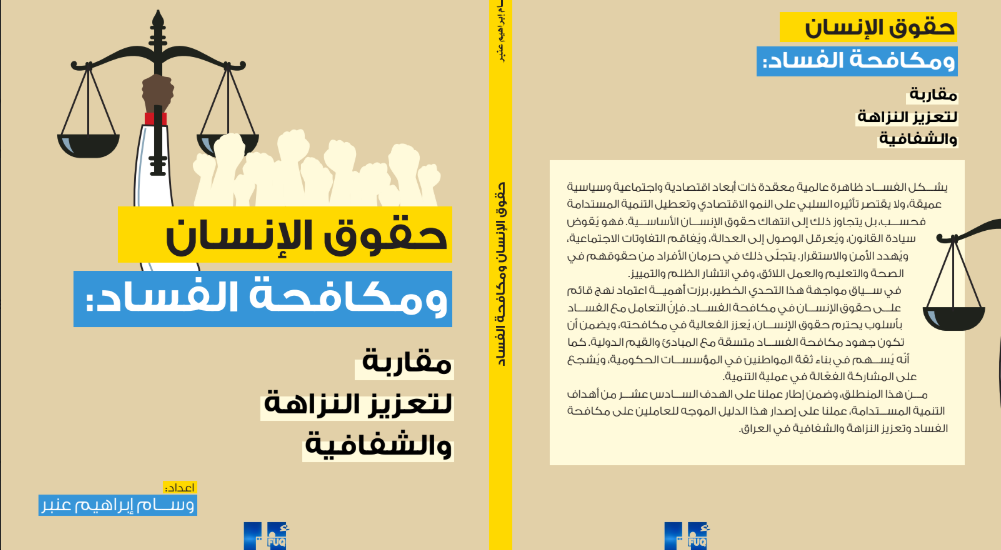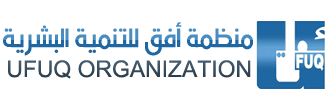- 1 مارس، 2025

Ufuq Organization for Development is pleased to present the new guide titled “Human Rights and Anti-Corruption: A Framework for Promoting Integrity and Transparency.” This guide is an important reference for those involved in human rights and anti-corruption efforts in Iraq and represents a significant step towards promoting integrity and transparency within national institutions and civil society.
The Importance of the Guide: Amid the ongoing challenges faced by Iraqi society and the world in combating corruption, the role of human rights emerges as a fundamental pillar in this context. This guide aims to provide a clear framework for those working in anti-corruption fields, ensuring respect for individuals’ fundamental rights while enhancing the effectiveness of anti-corruption efforts. This approach can help build trust between citizens and government institutions and encourage active participation in development efforts.
Key Contents of the Guide:
-
Introduction: The guide begins with a comprehensive introduction discussing the vital relationship between human rights and anti-corruption, explaining how a human rights-based approach can contribute to building more transparent and accountable political and social systems.
-
Definition of Corruption and its Impact on Human Rights: The guide defines corruption and explores its economic, social, and political dimensions, highlighting its devastating impact on human rights such as the rights to health, education, and justice.
-
Legal Texts: It includes key texts from international conventions and treaties related to human rights that advocate for anti-corruption measures and the promotion of transparency in government institutions, aiming to achieve social justice and protect individual rights.
-
Basic Principles of a Human Rights-Based Approach: The guide discusses the main principles that should guide anti-corruption efforts within a human rights framework, such as equality, non-discrimination, and the right to access information.
-
Human Rights Mechanisms for Anti-Corruption: The guide focuses on human rights mechanisms that can be employed to combat corruption, providing an overview of both international and national experiences in this area.
-
Role of Civil Society in Promoting Integrity: It outlines the role of civil society in activating the United Nations Convention against Corruption and contributing to the creation of a more transparent environment.
-
National Mechanisms for Anti-Corruption in Iraq: The guide presents the existing national mechanisms in Iraq for fighting corruption and suggests ways to enhance the effectiveness of these mechanisms in achieving transparency and integrity.
-
Ufuq’s Work in Promoting Transparency: It describes Ufuq Organization’s work in promoting transparency and integrity in Iraq through development projects and training activities aimed at raising awareness within society.
The Objectives of the Guide:
- Raise awareness about the impact of corruption on human rights.
- Highlight international and local legal mechanisms for combating corruption.
- Support national efforts in Iraq to combat corruption through a human rights approach.
- Encourage civil society’s active participation in fighting corruption and promoting transparency.
At Ufuq Organization, we believe that combating corruption requires a steadfast commitment to fundamental human values. Every effort made in this direction is a step towards a more just and transparent Iraq. Through this guide, we hope to contribute to the development of a deeper understanding in both society and institutions about the importance of integrating human rights into all anti-corruption efforts.

